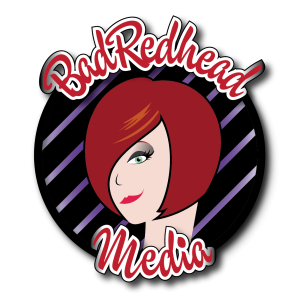How Google+ is Different from Facebook — A Primer for Authors by @K8Tilton

Author Camela Cami Thompson asked, “How is Google+ different from Facebook?” Kate Tilton compares these two platforms, so you can see the differences and similarities.
Differences
Membership Size
Facebook was founded on February 4, 2004, in 2012 Facebook hit the milestone of more than one billion active users. Google+ launched June 28, 2011, in 2013 the platform served 300 million people. With seven years to build membership, Facebook certainly has a larger membership size than Google+, but remember, Facebook is also the older platform. {Ed. note from Rachel: Google+ is owned by Google, so your Google+ posts show up higher in their search results than Facebook’s. From an SEO perspective, and for no other reason, you need to be on Google+!}
So what do these numbers mean? Facebook has reached its peak in the adoption categories, a marketing term that classifies consumers (aka us) based on our readiness to try new products. Facebook is currently at the laggards stage, these are those who wait the longest to try something new. Does this mean Facebook will not continue to see growth? No, Facebook will still see new members as younger generations come up and create their accounts. What this does mean is Facebook will not see any dramatic spikes in membership due to adoption from the general consumer market (aka us). Google+ on the other hand is still in the early adopters/early majority stages. This stage is where the general or mass market start to adopt/use the product. Meaning, we expect to see a great increase in Google+ uses over these next few years.
Audience
I mentioned the adoption categories earlier as these show a good picture of the audience of both platforms. Facebook is currently at the laggards stage, meaning few people do not have a Facebook account and those that don’t are not likely to create one. On the other hand Google+ is at the early stages, where those who are more willing to try something new are adopting the platform.
So what does this mean for authors? You have to consider your audience. If you cater to a crowd of readers who tend fall in the late adoption/laggard stage of the adoption categories, Facebook is where you will find more of your audience. If you write for those who are early adopters/innovators, Google+ may be the better platform for you.
Terminology
Facebook and Google+ have similar platform functionality, but the terminology of these pieces is different. Here are a few terms you’ll want to be aware of:
- Facebook profile -> Google+ profile
- The Facebook profile and Google+ profile function very much the same. The one downside currently to a Google+ profile over a Facebook profile is the lack of advanced scheduling options. On a Facebook profile, you can set posts to go out in the future with tools like Buffer, while on Google+ this is not yet an option.
- Facebook page -> Google+ page
- Facebook and Google+ pages again function pretty much the same. The difference being with a Google+ page you have very similar functions to a profile, including being able to add all sorts of accounts to your circles, while with a Facebook page you can only like pages (you can’t like profiles).
- Facebook friends -> Google+ circles
- With a Facebook profile you can add people to your friends list or follow users who have public updates. On Google+ you instead have circles. What is amazing about the circle ability is the option of creating different groups of people instead of having one massive list. So on Google+ for instance I have a circle of authors, one of bloggers, and one for the Kate Tilton’s Book Blogger group. This way when I want to view the stream of posts, I can select which audience I am looking to connect with. I can also send out updates directly to a circle. So instead of sending your latest book out to your entire network (including your friends/family who maybe don’t care about your latest book launch), you can select to send out the announcement to your own group of readers. This targeted marketing ability is a great way to keep from spamming those who may not be interested in content that is not relevant to them while still allowing you to share it to those who may be.
- Facebook like -> Google+ plus
- On Facebook you can like a post you’ve enjoyed. On Google+ you plus posts that you have enjoyed. Same function, different buttons.
- Facebook share -> Google+ share
- On both Facebook and Google+ you can share posts. The difference being who you share these posts with. On Facebook you can share to your friends or the public via your profile or you can share on your public page. On Google+ you have the option to share publicly, or with your circles (which could be one or all of your circles, the choice is up to you).
- Facebook groups -> Google+ communities
- On Facebook you can create groups and invite your friends to join in. On Google+ these are called communities.
Similarities
Layout
As you’ll notice with the terminology above, Facebook and Google+ have many of the same elements. Both sites have profiles, pages, groups/communities, sharing and liking options. Both networks are designed to connect people and offer similar sharing options. You can share status, photos, links, videos, and events on both sites.
Voice
Facebook and Google+ in many ways also have similar style. Unlike Twitter with the 140 character limit, both Facebook and Google+ allow for longer posts. Authors may find that posts that work well on Facebook may also work well on Google+.
So there you have it. The simple breakdown of Facebook and Google+ differences. When It comes to choosing what network to focus on, remember [share ]you do not have to be on every network to have a successful platform[/share]. Even huge companies like Copyblogger do not have Facebook pages and are still highly successful on social media. It is important to [share ]research your audience and pay attention to where they are the most active.[/share] Those are the platforms you should be on.










Great post! I learned about the value of Google+ from Guy Kawasaki’s book, “What the Plus?” I use it and I’ve found it helpful in connecting with other writers. The best part of Google + is being part of the communities. I like this more than Facebook groups. I’m most active in the Self Publishing community where you’re connecting with authors across the globe. They really tell you what they think, experience is vast, varied, and valuable, and spammers get booed asap.
Hi Kim!
I enjoy the group aspect of G+ and FB also quite a bit. I do try to connect with readers and book bloggers/reviewers as well, though. I find that connecting ONLY with other authors limits our ability to connect with readers and let’s face it, time is limited, right?
Just my two cents! Best, Rach
I agree, Rachel! I’ve learned that it’s best to interact where our areas of interest are. I’m still figuring that out for myself and how that links to readers. For example, I love knitting (and on Ravelry) but it’s not really the place to say, hey, by the way, here’s my book. Or is it?! 🙂 Authentic interaction leads to the best connections.
That’s great to hear Kim! Finding groups to connect with is important and with social media there are so many options available for us.
Great post. I was hot and heavy for G+ then tailed off due to lack of time. I want to get back to it as I much prefer it over FB. However I did want to add that I do schedule g+ posts in advance using Hootsuite. Just set up your G+ as one of your accounts and schedule posts like you would for FB or Twitter.
Hi Lissa,
Yes if you have a Google+ page you can schedule content in advance using a scheduling tool like Buffer or Hootsuite. But for Google+ profiles this not yet available (due to Google not yet releasing the API for developers), however on Facebook you can schedule posts on your profile. This is one of the big things that has kept me personally from being very active on Google+ at the moment. But we’ll see what comes along in the future!
Good summary, but I will disagree with one item: I use Buffer to schedule posts on my G+ author page (as well as FB and Twitter) all the time.
Thank you Cyndi,
As I mentioned in my post “The one downside currently to a Google+ profile over a Facebook profile is the lack of advanced scheduling options.” I am referring to the Google+ profile, not the page which yes, you can schedule posts for. With the profile that is not yet an option. On Buffer you can see this: click on the add accounts button, it will list “Google+ Page” and the “Google+ Profile” option will be in gray and if you hit it you get the prompt “Sorry! Buffer does not currently support Google+ profiles. We can let you know when this is available.” with links for more information.
[…] How Google+ is Different from Facebook […]
Thanks for this. It’s a relative term. Makes great sense. Also it helps and gives an improvement that meets everyone’s needs. Plus, I am also doing a research about Facebook versus Google+ and found this one http://www.lionleaf.com/blog/facebook-or-google-where-should-you-place-your-focus/ and it gives positive results too. Just a quick thought, in what part of their current changes does Facebook and Google+ fails in your opinion?
I’m not sure I’d say either site fails in my opinion. Both offer ways for us to connect with one another and although I am certainly more of a fan of Twitter than Facebook or even Google+ I know others who love Facebook and couldn’t imagine switching to a new site. Really it is all about finding the right fit for you and your audience.
[…] For the difference between Google+ and Facebook check out: How Google+ is Different from Facebook — A Primer for Authors by @K8Tilton […]
[…] For the difference between Google+ and Facebook check out: How Google+ is Different from Facebook — A Primer for Authors by @K8Tilton […]